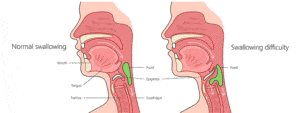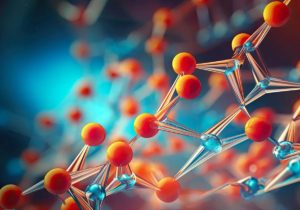CONTACT
We will reply as soon as possible.
Enevia Health, LLC
30 N Gould Ste N, Sheridan, WY 82801, USA
Autism is a neurodevelopmental disorder that affects communication, social interaction, and behavior in individuals with autism. While the exact cause of autism is not yet fully understood, it is believed that genetic, immunological, metabolic, and environmental factors may play a significant role in its development. Furthermore, it has been observed that nutritional deficiencies may be present in individuals with autism, which can affect their overall health and well-being.

Nutritional deficiencies in people with autism can be the result of several factors, such as:
It is a common problem in people with neurodevelopmental disorders, and is characterized by a preference for certain foods and a rejection of others. This selectivity can be due to a variety of factors, such as sensory sensitivities, difficulties in communication and social interaction, rigidity in routines and repetitive behavior patterns, among others.

It can present itself in different ways, such as preference for foods with specific textures, colors, flavors or particular brands, as well as resistance to trying new foods or limiting the variety of foods consumed. This selectivity can have negative consequences on the health and well-being of the person, as it can lead to nutritional deficiencies, gastrointestinal problems, difficulties in growth and development, among others.
To address food selectivity in individuals with autism, it is important to work with a multidisciplinary team that includes health professionals such as physicians, dietitians, occupational therapists, speech therapists, and behavioral therapists. Some strategies that can be used to manage food selectivity in individuals with autism include:
Food sensitivities and intolerances to certain foods are very common in patients with neurodevelopmental conditions, and can contribute to a variety of symptoms and health problems. These sensitivities can manifest in different ways and can be due to a variety of factors: intestinal dysfunction (intestinal permeability), imbalances in the intestinal flora (intestinal dysbiosis), inflammatory responses, among others.

Some of the most common food sensitivities in people with autism include:
To identify and address food sensitivities, intolerances, or allergies to certain foods in individuals with autism, it is important to work with a health care professional, such as an autism dietitian or nutritional therapist, who will develop a personalized meal plan that meets the individual's specific nutritional needs and effectively addresses their food sensitivities.
Some strategies that can be used to manage food sensitivities in people with autism include:
Also known as dysphagia, it is a problem that can occur and may be related to a variety of factors, such as motor coordination problems, oral hypersensitivity, and sensory processing problems.
When we talk about sensory sensitivities, a person may reject certain foods due to a certain sensitivity to textures, flavors, or temperatures, which can lead to refusing to swallow or chew the food. With respect to sensory processing, the person's ability to perceive and respond to stimuli or certain sensations is affected, so certain sensations, such as having food in the mouth, are not perceived as a stimulus for eating, making chewing or swallowing difficult.

Oral hypersensitivity is characterized by increased sensitivity in the mouth and throat, and swallowing or chewing solid foods or even liquids may be a cause of discomfort and irritation.
To address swallowing or chewing difficulties in people with autism, it is important to work collaboratively with a team of health professionals, such as an occupational therapist, speech therapist, autism nutritionist, and a developmental disorders physician. They will help us develop personalized strategies to improve nutrition and promote healthy eating in people with autism.
Some strategies that can be used to help people with autism overcome difficulties with swallowing or chewing include:
These deficiencies can affect the absorption of essential nutrients, which in turn can impact the physical, cognitive and emotional development of the person with autism.
One of the most common nutritional deficiencies in people with autism is a deficiency of certain essential nutrients, such as vitamins and minerals.
For example, many individuals with autism have been found to have low levels of vitamin D, vitamin B12, iron, zinc, and omega-3 fatty acids. These deficiencies may be related to poor diet, lack of sun exposure, intestinal absorption problems, or the use of certain medications.
The most important thing is to carry out the appropriate tests to begin correcting any possible deficiencies. When you go to the doctor or nutritionist, they will indicate a series of examinations or tests that we must carry out to understand how our body is functioning:
Water-soluble vitamins are easily absorbed, and excess water-soluble vitamins are excreted in urine, so they are the most abundant in the daily diet.
B6 is involved in the metabolism of energy, amino acids, carbohydrates, lipids and hormones. In addition, B6 works to produce neurotransmitters and is responsible for nerve function.
Folate is food for the brain. It is needed to produce red blood cells, for energy production, and is important for proper cell division and replication.
Vitamin C is a powerful antioxidant, therefore it is important for immunity. It is necessary to help heal wounds and promote iron absorption.
The body does not produce or store vitamin C, so sources of vitamin C MUST be consumed regularly to avoid deficiency. It is important to know that vitamin C supplementation is contraindicated in kidney disease, high oxalate levels, and hemochromatosis.
Fat-soluble vitamins must be taken with fat to be absorbed. They can accumulate in the liver, so it is essential to monitor levels through blood tests.
The retinol-binding protein that transports vitamin A needs zinc. Therefore, if there is a zinc deficiency, the function of vitamin A is often impaired. Zinc converts retinol into retinol, which is the form of vitamin A needed for the rods in the eyes.
Vitamin D is needed to help the body absorb calcium and fight off illness and infection. Most vitamin D is produced in the skin after sun exposure. However, despite getting plenty of sun, some children may still not be able to effectively convert sunlight into vitamin D.
Vitamin E is an antioxidant that prevents cell damage by inhibiting fat oxidation. It also supports nerve function, muscle health, and cholesterol metabolism.
Vitamin K is necessary for blood clotting and bone formation and helps bones absorb calcium.
Minerals are important for bones, teeth, hormone production, muscles, and brain and nervous system health.
Magnesium is a critical mineral needed for hundreds of metabolic processes in the body. It is needed for energy production, calcium and potassium absorption, hormone production, and more. This 2020 study showed that children with autism and ADHD had less magnesium in their hair and excreted too much magnesium in their urine.
Iron is necessary for the production of hemoglobin, which carries oxygen from the lungs to the tissues.
Every human cell contains zinc. It is very important for immune function and proper growth. Additionally, zinc is necessary for reproductive health, energy metabolism, proper sense of taste and smell, and to fight the formation of free radicals. Taking zinc is known to cause stomach upset, so be sure to take it with food. Additionally, zinc can lower cortisol levels; therefore, it is best to take it at night as it is ideal for cortisol to be lower before bed.
Lipids are fats that control what enters and leaves cells.
The omega 3 They keep cell walls soft and not rigid. Sixty percent of the brain is fat, so healthy fats are extremely important for brain health. The body cannot produce Omega 3 fatty acids, so they are considered “essential.” The most bioavailable forms of Omega 3 are found in fish. For this reason, it is known as fish oil.
CoQ10 is essential for energy production. In fact, ubiquinol is the most important nutrient for mitochondrial dysfunction, which is so common in autism. For this reason, it is very important for neurological function, cognition, immune function, and circulation. It also inhibits histamine, so it can be beneficial in case of allergies.
Amino acids are the building blocks of proteins. Data from a study showed that levels of the following amino acids were lower than average:
A study showed that serum levels of hydroxyproline and tyrosine in children with ASD were more than 2-fold and 11-fold higher compared to control values, respectively. And a multiple regression analysis showed that decreased serum levels of Leucine and Serine, and elevated levels of hydroxyproline and Tyrosine were significantly associated with ASD.
Amino acids are essential for the growth, development and proper functioning of the body. A deficiency in amino acids can negatively affect protein synthesis, cellular metabolism and the functioning of different systems and organs in the body.

Some consequences of amino acid deficiencies include delayed growth and development, impaired muscle function, weakness, fatigue, skin and hair problems, alterations in the immune system, among others. These are the fundamental reasons for evaluating amino acid levels in the body to detect possible nutritional deficiencies and take the necessary measures to correct them through a balanced diet, nutritional supplements or specific treatments.
At Enevia we offer specialized consulting services and different tests that can guide you in different areas such as neurology, genetics, nutrition and general medicine, as well as help you make the right decisions and analyze medical tests to achieve effective treatment for the pathologies that you may suffer from.
Enter our website through www.eneviacare.com and you will be able to find the services that we can offer you.
At Enevia, we are your ally in health!
We also leave you with a recent article that we published on our blog about the gut-brain axis: https://eneviahealth.com/blog/autismo-y-eje-intestino-cerebro-vinculo/
Nutritional Therapy for Autism | NICHD Español (nih.gov)
Metabolic interventions in Autism Spectrum Disorder – ScienceDirect
Serum amino acid spectrum in children with autism spectrum disorder (ASD) – ScienceDirect
We will reply as soon as possible.
30 N Gould Ste N, Sheridan, WY 82801, USA
Our groups are the ideal platform to learn and share your scientific concerns about neurodevelopment issues
*Our purpose is informational only, it is not intended to be a substitute for medical advice, diagnosis or treatment.
We are working on our website. For any queries, you can contact our customer service team at atencionalcliente@eneviahealth.com